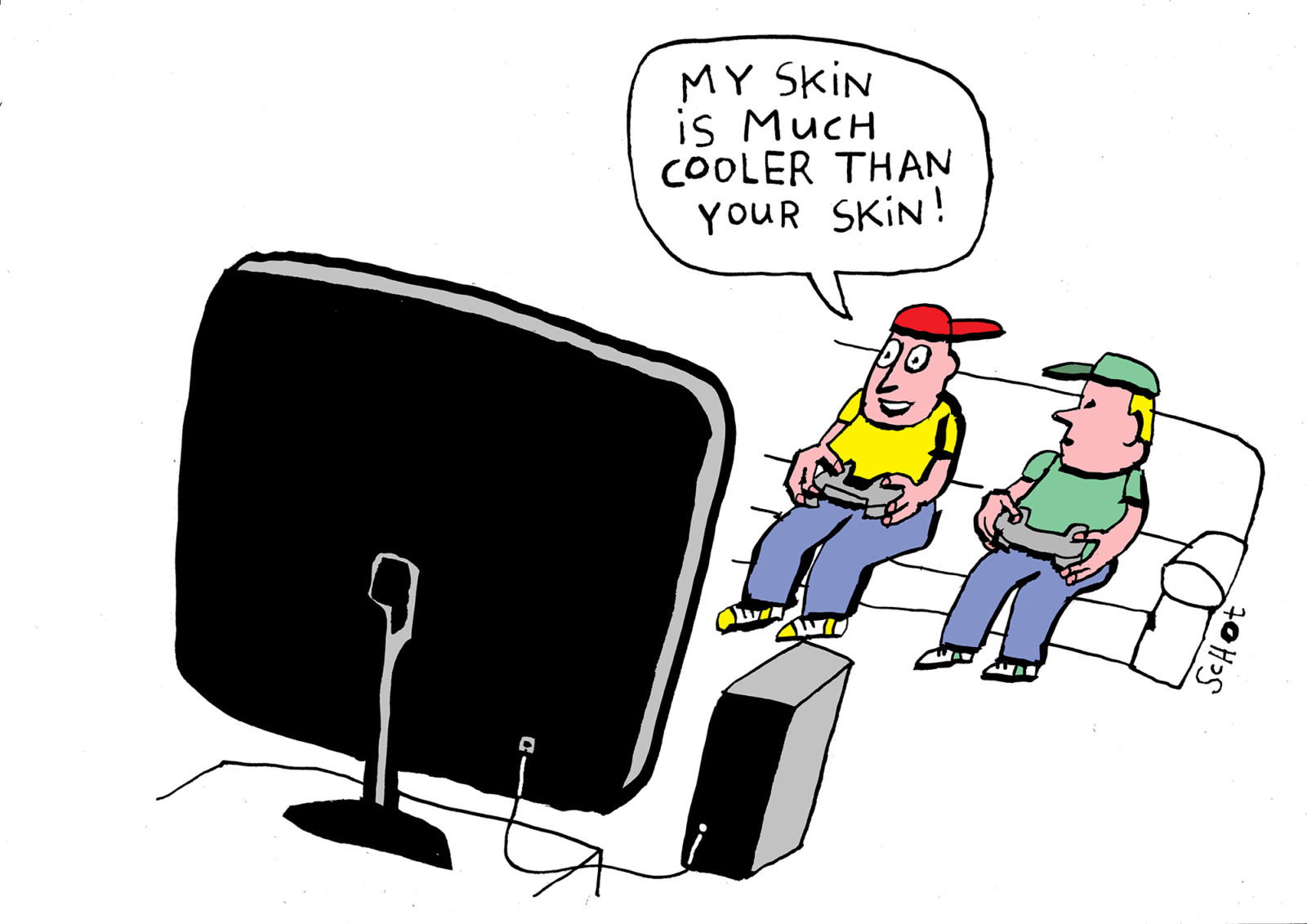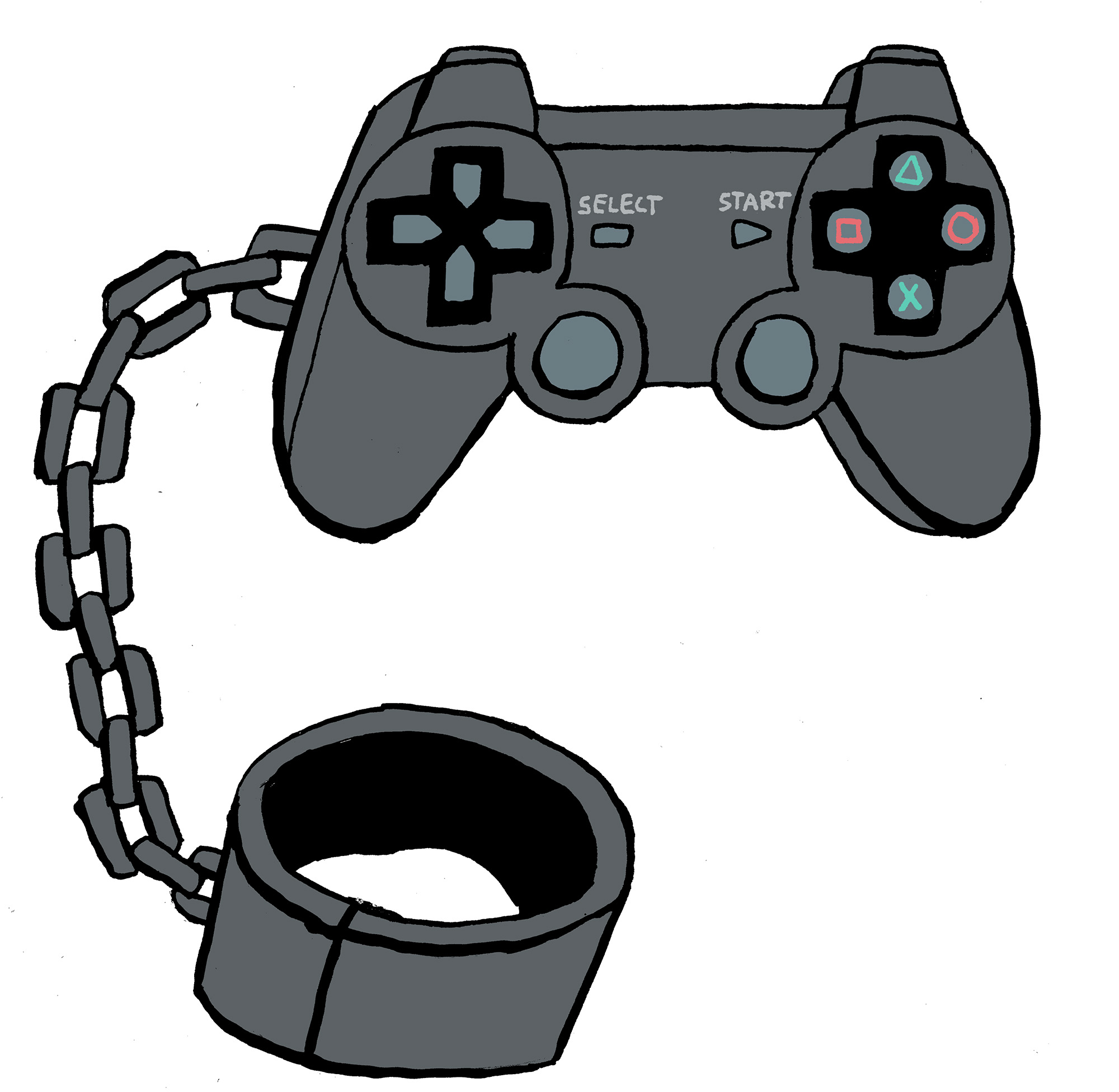Why Fortnite is so successful

Entire classrooms play simultaneously, star players earn millions. In just a short time, Fortnite: Battle Royale has turned into the world’s largest free game. But are teenagers able to cope with the lure of the game and its violence? Game researcher Teresa de la Hera: “Most gamers aren’t the least bit occupied with killing others.”
Teresa de la Hera is a game researcher at Erasmus School of History, Culture and Communication. She focuses on how digital games can have a positive effect on players’ skills and behaviour. Her dissertation Persuasive structures in Advergames (2013, Utrecht University) was awarded a prize as the ‘Best Academic Work in the Field of Media Studies’ from the Consell de l’Audiovisual de Catalunya (Spain).
‘Fortnite is about identity. Just like people want to wear a particular brand of sneakers offline, they adopt an online identity.’
How do you explain Fortnite’s enormous popularity?
“It’s a game that can be played on different platforms. In the gamer world a distinction is often made between games for PCs, mobile devices, and console games such as Xbox or PlayStation. The gaming environment for the latter two is usually considered to be a superior design. But Fortnite can be played on all platforms simultaneously, and it’s visually attractive with its high-quality graphics, endless possibilities and vast gaming environment. It’s a dazzling combination of genres: a third-person shooter game, a building game à la Minecraft, and it has that absurd humour you find in some PlayStation games. And it’s free, something people aren’t used to. For games of this calibre, such as Call of Duty or Grand Theft Auto, you’d pay around sixty euro.”
Is that revolutionary as a revenue model?
“The revenue model is based on in-game purchases. That’s very common in games, especially online. What’s different about Fortnite is that you don’t have to pay to play the game with all the meaningful features. Many games offer the first couple of levels for free, or players are given a basic set of weapons or skills for free, but they lock you out at some point if you don’t pay. Fortnite only charges money for cosmetic aspects: the ‘skin’ that determines your character’s superficial appearance, or the victory dances you can do.”
The creators of the game have certainly benefitted from this approach. This summer the turnover for in-app purchases passed the billion dollar mark. Fortnite dances spread across the globe. What’s going on here?
“It’s about identity. Fortnite is so popular it’s played by entire classes, the whole family, or a group of friends. In a given group, certain rules apply. You play the game with up to one-hundred other players simultaneously, so you’re visible. And just like people want to wear a particular brand of sneakers offline, they adopt an online identity that is appropriate to the community to which they belong.”

Image by: Bas van der Schot
To what extent is that problem? Teenagers are continuously struggling to assert their status. You see this in the schoolyard, in WhatsApp groups, on Instagram, and now on Fortnite.
“Whether it constitutes a problem depends on how you use a technology. Group behaviour is everywhere – offline and online – and it can lead to both negative and positive relationships. In my research I focus on the positive effects, and then it emerges that many games have a positive influence on players and society. You learn strategic thinking. That could be in the context of survival or building a fort. Gaming is so much fun because it appeals to the universal human need to create. And you learn how to resolve problems. In real life we often encounter problems that can’t be resolved, but in a game you know exactly what you need to do. It might take a long time or it could go quickly, but if you practice, you’ll succeed. That’s quite a difference from how it goes in real life: when you’re gaming you get another chance to repeat your attempt or to do it better. That helps you deal with frustrations you have in real life.”
The famous media intellectual Marshall McLuhan once said: “The medium is the message.” Any technology, he said, restructures social and economic patterns. In that context, could one particular technology simply be more detrimental than another?
“That is technological determinism, where the technology or medium is blamed for everything. Determinists say: games lead to violence and addiction and there’s nothing we can do about it. Grand Theft Auto is often criticised in this way: in a game where you have to run over and kill people or shoot them, it’s inevitable that this will incite negative behaviour. But my response to that is: if you’ve just watched an action film, that doesn’t make you want to kill everyone, does it?
“Numerous studies have explored violence and games. They show that most people aren’t the least bit occupied with killing others. We can’t blame technology for everything, and we have to think about how we as a society use technology and why.”
‘A game like this is a reflection of society, it doesn’t create new desires’
You have a son. How old is he?
“Three, so much too young to be playing Fortnite. But if he was old enough, I would encourage it because he would develop all kinds of skills. But it’s your duty as a parent to ensure it’s done responsibly. I’m convinced that parents have to guide their children in any contact they have with others, whether that’s online or in the schoolyard.”
Cynics say the game’s design fixates on consumerism and status. Can you counter that as a parent?
“A game like this is a reflection of society, it doesn’t create new desires. If a teenager wants to spend money in Fortnite because he values a particular move or outfit, it’s because he has similar desires in real life. Just like my child doesn’t get a new pair of Nikes every week, he’s also not allowed to get a new skin every week. What I would impart to children is: it’s your behaviour that’s important, not what you own. That’s another positive aspect of gaming: it gives you a new opportunity to discuss things your child feels are important in life and how you relate to others.”

Image by: Bas van der Schot
Are some children more susceptible to the lure of this type of games?
“It’s often children with developmental problems. They have underdeveloped social skills or they find themselves isolated, because, for example, their school or their parents have left them to fend for themselves. Such children are more susceptible to game addiction and social media pressure, as well other types of psychological disorders such as anorexia or drug addiction.”
Are you a gamer?
“Yes, ever since my father came home with a Nintendo when I was around eight years old. I like platform games like LittleBigPlanet and I play Grand Theft Auto with my husband. He does the missions that involve shooting, and I do the strategic missions. But if I had the time I would definitely play Fortnite.”
The game is popular among women. Did it play an empowering role in the game world?
“I’m not sure about the exact figures, but it’s true that a relatively large number of women play the game. I can see why. The game has a cartoonish environment, and it’s not as sinister as traditional shooter games. It has something for everyone.”
There was recently an item on a British website about a rise in the number of divorces due to Fortnite. What went through your mind when you read that?
“If couples divorce it’s because they have relationship problems, not because one of the two spends an excessive amount of time gaming. It could be a symptom. If you’re no longer talking and you no longer enjoy spending time together, that leads to escapism. One type of person goes to the pub in that case, while another spends time gaming. And to be honest, if I had to choose: pick gaming. It’s healthier than excessive drinking.”
De redactie
Latest news
-

University calls on people to remind smokers, security guards don’t send smokers off campus
Gepubliceerd op:-
Campus
-
-

What do the new European housing plans mean for students?
Gepubliceerd op:-
Campus
-
-

Makeover for Erasmus Magazine: new and more accessible website is live
Gepubliceerd op:-
Campus
-
Comments
Comments are closed.
Read more in the issue
-

A self-funded war: how Sudan got trapped in a fatal deadlock
Gepubliceerd op:-
The Issue
-
-

Why French politics is faltering under pension pressure
Gepubliceerd op:-
The Issue
-
-

‘Artists like Bob Vylan and Kneecap are more than just a mirror of society’
Gepubliceerd op:-
The Issue
-







